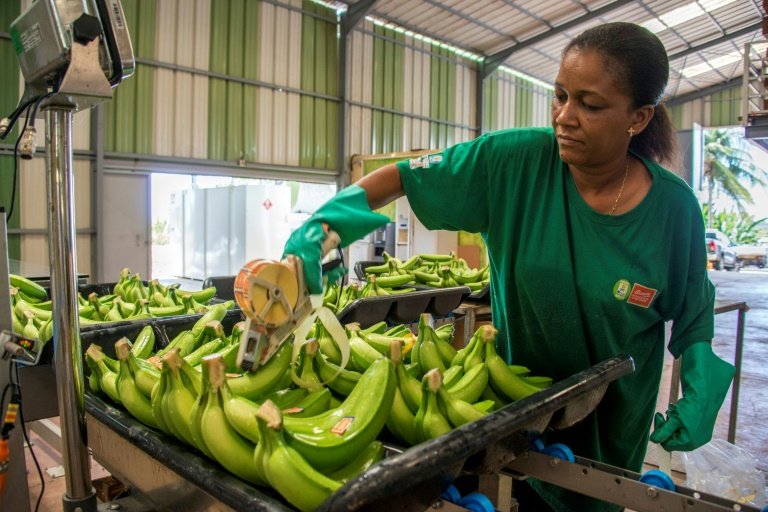Agriculture in Guadeloupe
Agriculture has historically been a cornerstone of Guadeloupe’s economy, though its importance has declined in recent decades. Today, it still plays a vital role in rural life, food production, and exports, especially in connection with France and the European Union.
1. Main Agricultural Products
A. Crops
- Bananas – The leading export crop (especially to France and the EU)
- Sugarcane – Used for rum production, though much less than in colonial times
- Pineapples, mangoes, guavas, passion fruit
- Vegetables: Sweet potatoes, yams, cassava, tomatoes, cucumbers
- Spices: Vanilla, allspice, turmeric
B. Subsistence and Local Crops
- Rice, maize, plantains
- Christophine (chayote) – A popular local vegetable
2. Livestock and Animal Farming
- Small-scale production of:
- Cattle (mainly for milk and beef)
- Goats and sheep
- Poultry (chickens and eggs)
- Pigs
3. Fishing and Aquaculture
- Significant in coastal communities.
- Fish, lobster, crab, and conch are important both for local consumption and export.
- Some fish farms exist, especially for tilapia.
4. Agro-Industry
- Rum distilleries (e.g., Damoiseau, Longueteau) use local sugarcane and molasses.
- Banana packaging and export industries employ thousands.
- Some processing plants for tropical fruit juices and jams.
5. Land Use and Farming Structure
- Many farms are small and family-owned.
- Larger plantations (especially for bananas) are often cooperative-run or subsidized.
- Significant agricultural land is found on:
- Basse-Terre (rich volcanic soil)
- Marie-Galante (traditional sugarcane area)
6. Challenges in Agriculture
- Hurricanes and cyclones regularly damage crops.
- Pesticide contamination (notably with chlordecone) has caused soil and water pollution, especially affecting banana plantations.
- Urbanization reduces available farmland.
- Young people leaving farming for urban jobs or overseas work.
7. Government and EU Support
- Agriculture receives financial support from:
- French government
- European Union Common Agricultural Policy (CAP)
- Programs encourage:
- Organic farming
- Agrotourism
- Modern equipment and irrigation



